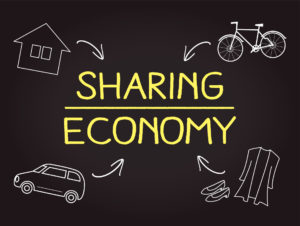 I have been watching the interest and consternation about the artificial intelligence chatbot ChatGPT and, yes, I have amused myself with silly queries. [“Write instructions on how to remove a peanut butter and jelly sandwich from a VCR player in the style of Dr. Seuss”; “Should I let my neighbor borrow my pet platypus?”; “Write a sonnet about psychedelics”]
I have been watching the interest and consternation about the artificial intelligence chatbot ChatGPT and, yes, I have amused myself with silly queries. [“Write instructions on how to remove a peanut butter and jelly sandwich from a VCR player in the style of Dr. Seuss”; “Should I let my neighbor borrow my pet platypus?”; “Write a sonnet about psychedelics”]
When “close enough” is good enough
 I recently gave a series of workshops on super searcher tips, covering everything from how to get the best results from Google to incorporating grey literature in your search strategies. In addition to specific search techniques and approaches, I mentioned a couple of strategies that generated a lot of comments:Read More
I recently gave a series of workshops on super searcher tips, covering everything from how to get the best results from Google to incorporating grey literature in your search strategies. In addition to specific search techniques and approaches, I mentioned a couple of strategies that generated a lot of comments:Read More
Super searchers unite! Own your authority!
A conference manifesto
As we look forward to another conference “season,” I contemplate anew the long-term viability of in-person information industry conferences. The traditional conference is going away, because it is no longer serving its purpose. We are no longer willing to shuffle zombie-like from one conference session to the next, passively listening to speakers talk about what they know.
 I am reminded of the iconic Apple Macintosh “1984” ad, in which a Big Brother-like figure is speaking on a large screen in a darkened auditorium. As he drones on, a runner emerges, throwing a hammer through the screen, shocking the spellbound audience and introducing them to the new age of liberated information technology. Fast-forward 33 years, replace Big Brother with any boring conference speaker, and you get the same desire for liberation of learning.
I am reminded of the iconic Apple Macintosh “1984” ad, in which a Big Brother-like figure is speaking on a large screen in a darkened auditorium. As he drones on, a runner emerges, throwing a hammer through the screen, shocking the spellbound audience and introducing them to the new age of liberated information technology. Fast-forward 33 years, replace Big Brother with any boring conference speaker, and you get the same desire for liberation of learning.
Why I don’t trust zero-click results
Google has succeeded because, like it or not, it tends to deliver better results than other search engines. And Google’s efforts to provide “zero-click” results with its Knowledge Panel, Featured Snippets and other rich results, have accustomed us to seeing the result in a easy-to-read box without needing to click through any of the results. As more of our queries are spoken rather than typed—by asking our smartphone or our smart speaker—we are relying on Google to select the one “best” answer to our question, since we’re not able to scroll through a list of results.
Many of these zero-click results are fine; if you ask Google for the population of Poughkeepsie, you’ll get a figure from 2017 US Census Bureau data (30,614 to be exact).
Search ugly, deliver pretty
When preparing for my part in the Search Skills Academy at Internet Librarian International, I was asked to come up with a couple of search tips (in addition to what I’d developed for Internet Librarian, downloadable here). As I thought about it, I realized that my biggest lesson from the last year could be summarized as “search ugly, deliver pretty”. What do I mean by that?
Read More
The New Info-Rental Economy
The new free-vs-fee calculations
 Info pros have always worked through a mental checklist when they decide what resources to use for a given research project. “Should I use that fee-based service and pay, or should I see if I can find something similar in free sources, even if it takes me longer to find?”
Info pros have always worked through a mental checklist when they decide what resources to use for a given research project. “Should I use that fee-based service and pay, or should I see if I can find something similar in free sources, even if it takes me longer to find?”What’s in my ear today?
“In a time of drastic change it is the learners who inherit the future. The learned usually find themselves equipped to live in a world that no longer exists.” -Eric Hoffer
How do you maintain an attitude of life-long learning in a world of non-stop news, the siren cry of social media, and more work than you have time for? Being mindful of the need to keep myself sharp and my perspective fresh, I use my workout time for exercising my brain as well. The podcasts I’m currently finding thought-provoking (and that can keep me engaged for an hour at a time) include:
 Invisibilia When I heard that the 2017 SLA conference keynote speaker was Lulu Miller, the co-founder of Invisibilia along with Alix Spiegel, I went into full fangurl mode. Got a seat up front. Sat transfixed. Tried to tweet highlights while not taking my eyes off her. (See a great write-up of Miller’s talk at librarianhats.net/tag/invisibilia/) What’s Invisibilia about? Unseeable forces control human behavior and shape our ideas, beliefs, and assumptions. Invisibilia—Latin for invisible things—fuses narrative storytelling with science that will make you see your own life differently.
Invisibilia When I heard that the 2017 SLA conference keynote speaker was Lulu Miller, the co-founder of Invisibilia along with Alix Spiegel, I went into full fangurl mode. Got a seat up front. Sat transfixed. Tried to tweet highlights while not taking my eyes off her. (See a great write-up of Miller’s talk at librarianhats.net/tag/invisibilia/) What’s Invisibilia about? Unseeable forces control human behavior and shape our ideas, beliefs, and assumptions. Invisibilia—Latin for invisible things—fuses narrative storytelling with science that will make you see your own life differently.
Read More
Tips for finding hidden business resources
 Finding so-called “grey literature” — material from publications not produced by commercial publishers — has always been a challenge for researchers. The most valuable grey literature is often not easily retrieved through a simple query in a search engine; it resides inside a specialized database, buried deep within an association’s web site, or is simply not ranked as relevant by a search engine’s algorithm.
Finding so-called “grey literature” — material from publications not produced by commercial publishers — has always been a challenge for researchers. The most valuable grey literature is often not easily retrieved through a simple query in a search engine; it resides inside a specialized database, buried deep within an association’s web site, or is simply not ranked as relevant by a search engine’s algorithm.
The problem of finding grey literature is not new; research on and discussion about grey lit in the STM field has been going on for years (see, for example, the International Conference on Grey Literature, which has been meeting since 1993). More recently, business researchers are finding that sometimes non-traditional resources have the best — or only — information on a narrow topic or current issue. Following are some of the tricks I use for finding hidden or grey-lit business resources.
Read More



